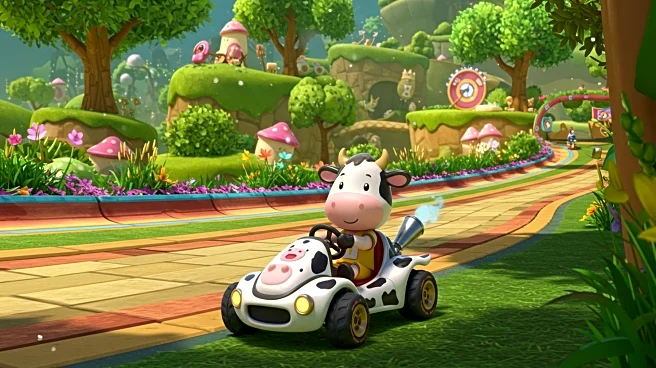What's Happening?
PETA has issued a letter to Nintendo's president, Shuntaro Furukawa, requesting the removal of the nose ring from the Cow character in 'Mario Kart World.' The organization argues that the nose ring symbolizes the exploitation and cruelty faced by cows in the meat and dairy industries. PETA's SVP of Marketing Engagement, Joel Bartlett, emphasized the need for empathy towards animals and urged Nintendo to redesign the character. The game, released in June 2025, has been a commercial success, with millions of copies sold.
Why It's Important?
The campaign by PETA underscores the growing concern over the depiction of animals in entertainment media. By challenging Nintendo, PETA aims to raise awareness about animal welfare and encourage ethical considerations in character design. This move could influence how video game companies approach the portrayal of animals and address ethical issues in their products. It also reflects broader societal debates about the treatment of animals and the responsibilities of media creators in shaping public perceptions.
What's Next?
Nintendo's response to PETA's request could set a precedent for how video game companies handle similar ethical concerns. If Nintendo decides to redesign the character, it may lead to increased scrutiny of other games and media that depict animals. Stakeholders, including animal rights groups and gaming communities, will likely watch closely to see how Nintendo addresses the issue and whether it prompts changes in industry practices.
Beyond the Headlines
The campaign may also spark discussions about the role of video games in influencing societal attitudes towards animals. As digital media becomes increasingly pervasive, there is growing interest in how games can be used to promote positive messages and awareness about ethical issues. This could lead to collaborations between game developers and advocacy groups to create content that aligns with contemporary values.









